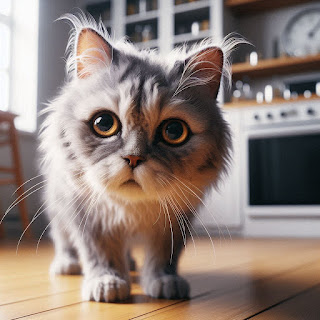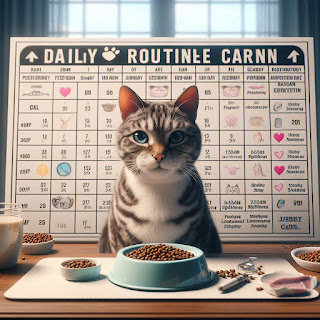Understanding Senior Cat Behavior Changes: What Every Cat Owner Needs to Know
As our beloved feline companions age, their behavior can undergo significant changes. Just like people, senior cats experience various physical and mental shifts that can affect how they interact with their environment and their owners. Understanding these changes is crucial for ensuring your senior cat remains healthy, comfortable, and happy in their golden years. In this article, we'll explore common senior cat behavior changes, provide tips for managing them, and offer guidance to help your aging feline thrive.
Common Behavior Changes in Senior Cats
Increased Sleeping: One of the most noticeable changes in senior cats is a significant increase in sleep. Older cats often need more rest as their energy levels decline. This is a normal part of aging, but if you notice sudden or excessive lethargy, it’s worth discussing with your vet to rule out underlying health issues.
Reduced Activity Levels: As cats age, they tend to become less active. They might play less, prefer lounging over climbing, and take longer to engage in their usual activities. While reduced activity can be normal, it’s important to ensure your cat isn’t experiencing pain or discomfort that could be limiting their mobility.
Changes in Appetite and Weight: Senior cats may experience shifts in appetite, either eating less or becoming more finicky. Weight changes can also occur, including weight loss or gain. These changes can be linked to dental problems, digestive issues, or underlying health conditions. Regular veterinary check-ups are essential to monitor and address these concerns.
Increased Vocalization: Some senior cats become more vocal as they age. Increased meowing or yowling can be a sign of confusion, discomfort, or a desire for attention. If this behavior is new or intensified, it’s worth investigating whether your cat’s vocalizations are due to a medical condition or if they simply need more companionship.
Changes in Bathroom Habits: Older cats might have accidents outside the litter box or exhibit changes in urination and defecation habits. This can be due to mobility issues, cognitive decline, or medical conditions like diabetes or kidney disease. Ensuring easy access to a clean litter box and monitoring any changes in bathroom habits is crucial for your cat’s well-being.
Cognitive Decline: Similar to humans, cats can experience cognitive decline or feline cognitive dysfunction syndrome (CDS). Symptoms include disorientation, disrupted sleep patterns, and changes in behavior. Creating a stable and enriched environment, along with veterinary guidance, can help manage these symptoms.
Tips for Managing Senior Cat Behavior Changes
Regular Veterinary Visits: Schedule frequent check-ups to monitor your senior cat’s health and address any emerging issues promptly. Your vet can provide tailored advice and treatment options based on your cat’s specific needs.
Comfortable Living Environment: Ensure your home is adapted to your senior cat’s needs. Provide easy access to food, water, and litter boxes. Soft bedding and elevated surfaces can help with mobility issues.
Maintain a Consistent Routine: Older cats thrive on routine. Keep feeding times, playtimes, and daily interactions consistent to provide stability and reduce stress.
Encourage Gentle Play: Engage your senior cat in gentle play that accommodates their physical limitations. Soft toys, interactive games, and low-impact activities can help keep them mentally stimulated without overexertion.
Monitor Behavior Changes: Pay close attention to any changes in your cat’s behavior and health. Early detection of issues can lead to better management and treatment options.
Provide Mental Stimulation: Stimulate your cat’s mind with puzzle toys, food-dispensing toys, and interactive play to keep their cognitive functions sharp and prevent boredom.
Conclusion
Understanding and managing senior cat behavior changes is vital for ensuring your feline friend’s comfort and well-being as they age. By recognizing these changes and adapting your care approach, you can help your senior cat enjoy a fulfilling and happy life in their later years. Regular veterinary care, a stable environment, and attentive care will go a long way in supporting your aging companion.


.png)












